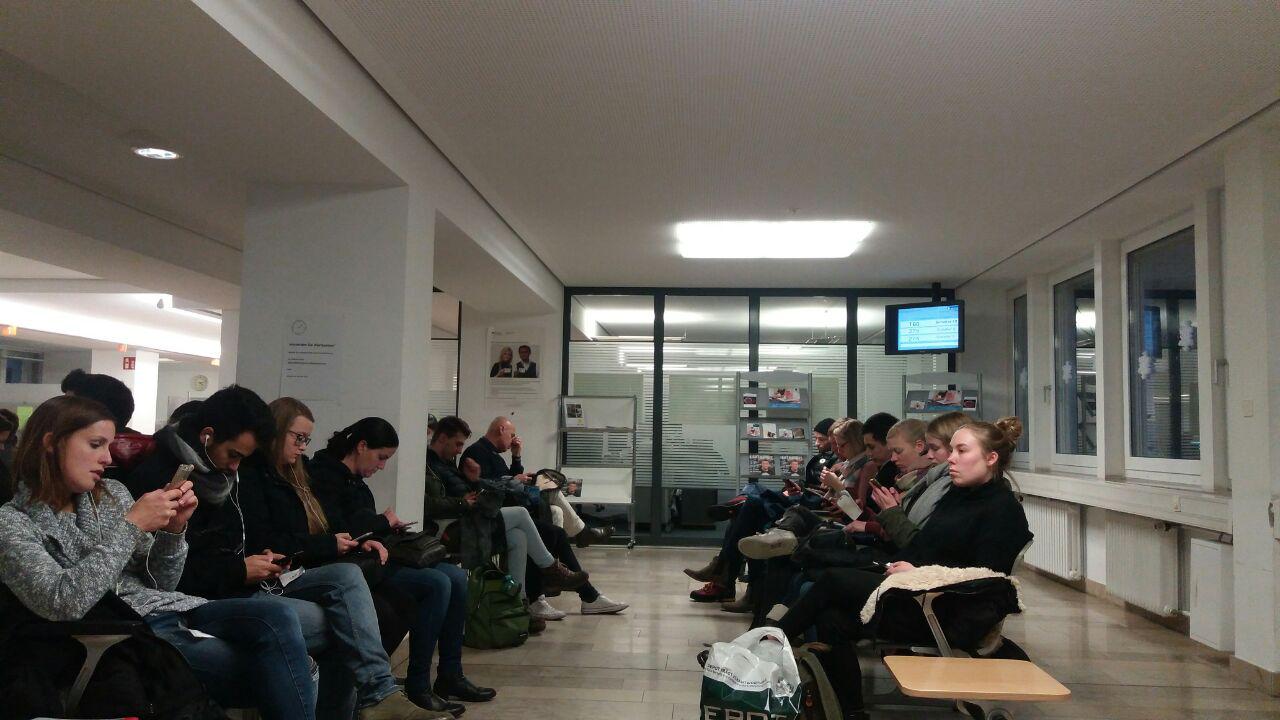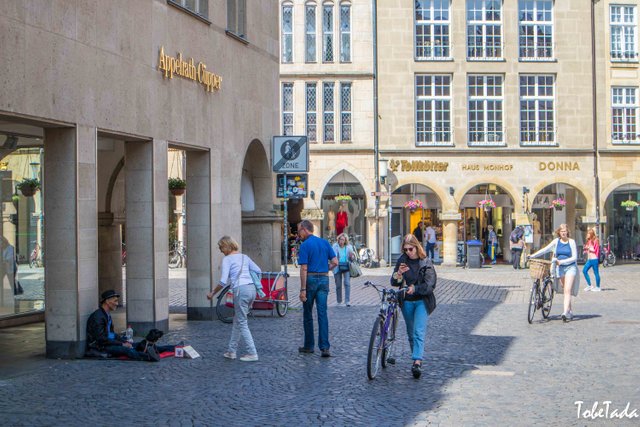The Spaces Around Us

Some time ago I visited the city town hall and was fortunate enough to have made an appointment in advance so I didn’t have to wait very long. There must have been 30 people in the waiting room and pretty much all of them were glued to their cell phones. It’s a sight we have become accustomed to over the last decades as cell phones have become inseparable from our social lives.
Of course, at the beginning there were the critical voices warming over the adherent effects of this kind of behavior. But this voice has become more quiet over the years and I doubt that many (especially young) people give this kind of behavior much of a second thought.
I guess I am somewhat privileged to be one of the last generations that have grown up before the smartphone era. But just barely; I can still remember the onset of the information age when I was a child and could not have imagined the future we are living in today. I say privileged because I can at least remember the world before the smartphone. But don’t get me wrong, I don’t want to immerse myself in some kind of romantic nostalgia. Not all things were better then—far from it. In fact, I gladly point to the positive effects the smartphone revolution has had on our lives: greater interconnectedness with our friends and family and even the world as such or the simplification of many tasks such as shopping, banking, communication (translating languages), or getting around. All in all it is hard to argue against the benefits this piece of technology has had on our social lives.
Yet I wouldn’t be writing this article if I didn’t want to point out something that I feel a lot of people have missed during this transition. The picture I took in the town hall reminded me of how strongly smartphones have strengthened our individual bubbles we all live in. And of course the paradox is that in this bubble we are actually communicating with our family, friends, or even strangers. So in a sense we aren’t isolating ourselves from the people around us as we are living in a shared social space. However, what we are doing is that we are isolating ourselves from the people and objects around us in our shared physical space. This physical space is the immediate space we live in. Never before in the history of mankind have we been able to avoid this space as we are doing now. We might be present with our bodies, but our minds are often absent while foraging through the internet cyberspace.

I would argue that it is important to be present in the immediate spaces around us. Of course not all of the times, but more so than most people currently are. I say this because I believe that with being present comes the joy of discovery. You can discover the world around you, look at the things and people and if you feel like it, interact with them. It is an art that has perhaps become lost in our contemporary time: When was the last time that you genuinely looked at something as if it were the first time you saw it? If you do this, something quite remarkable might happen. The mind might become more quiet and a space might open up where there is room for discovering something new. Granted, with objects it is harder as with animate things, but even here it is interesting to do this little meditation. Looking at the wood of a table, the glass of the windows, the way the light breaks on the ceiling and radiates the colors in the room… all of these things can be a very worthwhile undertaking. It can relax the mind and renew it.
If you decide to look at the person next to you, you may also discover new things. Like the different ways people act in certain circumstances or even the sameness of their behaviors. You may see the beauty of a person or even perhaps the burden some people have to carry in their lives. When being present in these moments, understanding and realization can enter into your mind. Perhaps you feel closer to the people around you, or perhaps you feel a sense of separation. Whatever it might be, explorer this feeling and see where it will lead you while you are aware of what it does with your self. This can be a great joy and a place of learning more about the world and about you as a whole.
If we are immersed in the social space, but are not present in our immediate physical space we occupy then this avenue of discovery is mitigated. We do not see it as we are not aware of it. Perhaps the next time when you are preoccupied with your smartphone, raise your eyes or open the senses you have to the space around you and see where the journey of discovery might lead you.

Interesting read. I too feel fortunate to have been born just before the technology revolution as it is in its present form. I recall aching to get home from school so that I could run around the neighborhood with my friends. There was a certain freedom that came with that. It seems we are entering an era where leaving the house will become unnecessary. There is a certain convenience threshold being crossed over. It is not natural.
I hope that prediction won't turn out to be true. Recently, I saw a documentary about a Japanese's phenomenon called hikikomori. It describes people who have cut most strings with society and mostly or only live at home. It's quite unsettling. But I also believe that technology has made such a life possible in the first place (although living at home with parents e.g., must have always occurred in the past) and we should be wary of such effects of technology on society as a whole.
To listen to the audio version of this article click on the play image.

Brought to you by @tts. If you find it useful please consider upvoting this reply.